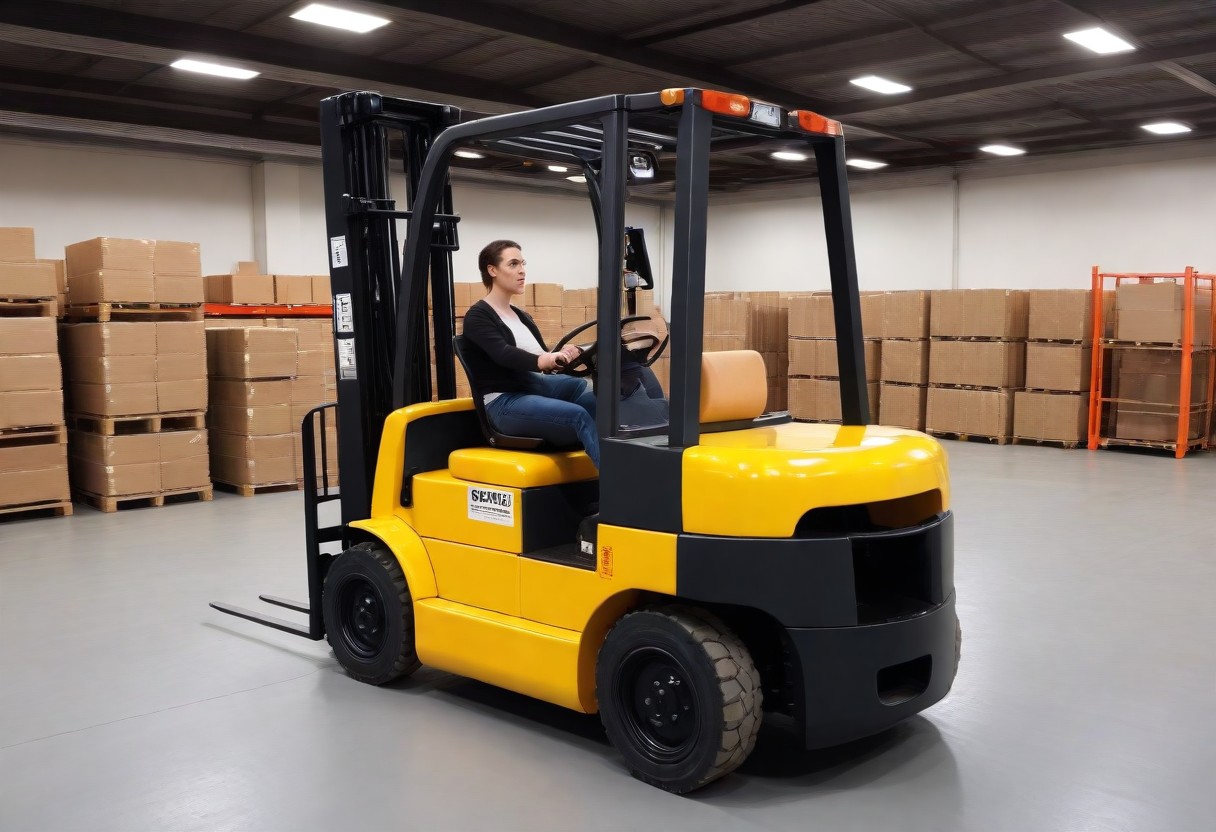The Impact of Quality Forklift Training on Business Operations
Forklift training is crucial for businesses relying on material handling. Therefore, understanding its impact on operations is key. Simply put, skilled forklift operators ensure safety and efficiency. However, the benefits extend beyond safety. For example, they boost workplace productivity. Moreover, meeting legal requirements becomes easier with proper training.
Additionally, it saves costs, from reducing equipment damage to lowering insurance premiums. Recognising the importance of forklift training is vital for long-term success. So, investing in it is not just an expense; it is a smart decision for any business.
Safety First
Safety is paramount in forklift operations, making quality forklift training indispensable. Comprehensive training programs cover essential safety topics. These include everything from proper operation techniques to hazard recognition. By equipping operators with knowledge, the Forklift operator course reduces accident risks significantly.
Awareness and Prevention
Training raises awareness about risks like unstable loads and blind spots. This empowers operators to mitigate hazards proactively. Understanding dangers enables informed decision-making for prioritising safety.
Personal Protection
Emphasis is placed on wearing personal protective equipment (PPE) like helmets and vests. Integrating PPE into training ensures operators are adequately protected during operations.
Equipment Maintenance
Training includes pre-operational safety checks and maintenance tasks. Thus, fostering a culture of regular equipment inspection. By ensuring forklifts are in optimal condition, businesses prevent accidents due to mechanical issues.
In conclusion, prioritising safety through quality forklift training is essential for creating secure work environments and minimising accidents. Investing in forklift operator courses empowers operators to operate safely and efficiently. This contributes to overall workplace safety.
Increased Efficiency
Efficiency is vital for smooth business operations, and forklift training plays a crucial role in achieving it. By providing operators with the necessary skills and knowledge, businesses can make their material handling processes more efficient. This ultimately leads to boosting productivity.
Improved Handling Skills
Forklift training enhances operators' ability to manoeuvre and handle loads effectively. This means smoother operations, fewer delays, and better utilisation of time and resources.
Minimised Product Damage
Proper training also reduces the risk of product damage during handling. Operators learn safe lifting and stacking techniques. This results in fewer accidents and cost savings from damaged goods.
Streamlined Workflow
Furthermore, trained operators contribute to a more streamlined workflow by understanding material flow and logistics processes. This ensures tasks are completed promptly and resources are used efficiently.
Increased Productivity
Ultimately, forklift training leads to higher productivity levels. Skilled operators can accomplish tasks more efficiently. This leads to higher output and overall improved performance.
Hence, investing in forklift training, such as forklift driving lessons, is essential for businesses aiming to enhance efficiency in material handling. By equipping operators with the necessary skills, businesses can achieve smoother operations and higher productivity levels.
Compliance and Legal Requirements
Meeting safety regulations and legal standards is crucial for businesses using forklifts. Forklift training ensures operators understand these rules, preventing penalties and maintaining workplace safety.
Prioritise Safety
Operators learn safe forklift operation, reducing accidents and keeping the workplace safe. Forklift skills training ensures they know how to work safely.
Spot and Solve Risks
Training helps operators identify and deal with workplace hazards, preventing accidents. Therefore, this proactive approach is key to meeting legal requirements.
Stay Updated
Regular training updates keep operators aware of changing regulations and safety standards. Staying informed is essential for legal compliance.
In summary, forklift training is vital for businesses to meet legal requirements. Overall, by ensuring operators understand and follow safety regulations, training creates a safer and more compliant workplace.
Cost Savings and ROI
Investing in forklift training does not just improve safety and efficiency. It also saves businesses money and provides a solid return on investment (ROI). By giving operators the right skills and knowledge, businesses can cut costs related to accidents, equipment damage, and insurance premiums.
Preventing Accidents and Damage
Forklift operation training helps avoid accidents and damage. Skilled operators cause fewer accidents, saving money on injury costs and repairs. Therefore, training leads to direct cost savings and a better ROI.
Less Maintenance
Proper training teaches equipment care, reducing repair needs and downtime. Hence, this means lower maintenance costs and longer equipment life, saving money over time.
Lower Insurance Costs
Well-trained operators mean lower insurance premiums. Insurers see them as less risky, so businesses pay less for liability and property coverage. Therefore, training can lead to significant insurance savings.
Boosted Productivity
Trained operators work faster and more efficiently. They handle materials better, boosting output and cutting labour costs. Similarly, improved productivity means overall savings and a higher ROI for businesses.
In conclusion, forklift training offers big savings and a strong ROI. By preventing accidents, reducing maintenance and insurance costs, and boosting productivity, businesses can save money and get the most out of their investment in training.
Conclusion
In summary, quality forklift training has a big impact on businesses. It keeps workplaces safe, saves money, and boosts productivity. By teaching operators how to work safely and efficiently, training reduces accidents and damage to products and equipment. This means lower costs for repairs, insurance, and downtime.
Thus, if you are looking for forklift training courses, do not hesitate to get in touch with us. We have qualified experts to help learn to use machines safely and effectively.




Comments
Post a Comment